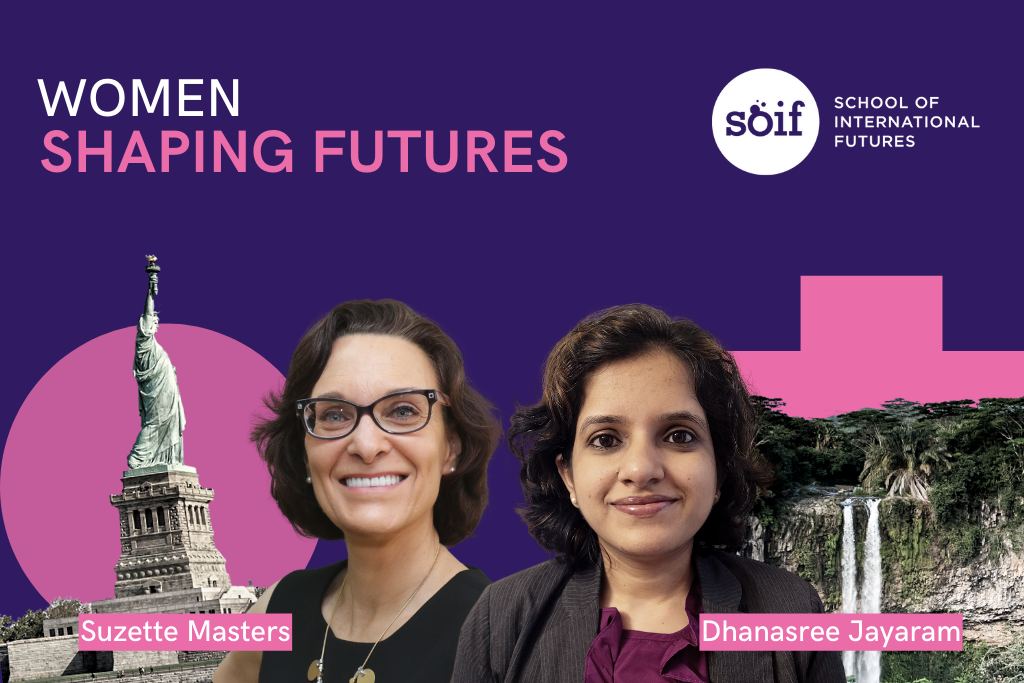
At SOIF, we are marking International Women’s Day by recognising women who are using futures to create a fairer, more sustainable world.
Suzette Masters Brooks co-authored Imagining Better Futures for American Democracy, and Dhanasree Jayaram is a Next Generation Foresight Practitioners fellow and an Assistant Professor at the Manipal Academy of Higher Education in India.
Mudabbir Maajid asked them how they got involved in futures, and its impact on their personal and professional lives.
1. How did you get involved in thinking about futures in your work area?
Suzette: I work on securing a democratic future for America. A string of reversals in recent years has led many (myself included) to question whether that future is still attainable. With so much focus on defence and system preservation, I saw a need to inspire people with the belief that positive transformation was possible. Imagining and realising aspirational visions for the future – for our governance systems, planet and future generations — must exist alongside critical efforts to prevent a descent into authoritarianism. Defence alone will not win the day.
Dhanasree: My research on climate security and climate diplomacy invariably involves futures thinking, as we try to imagine and prepare for various climate-related risks and systemic risks associated with climate change, including food, water, and energy insecurities that developing countries, in particular, face. Futures thinking made me realise that the current security framings utilized in the development of policies and technological solutions in climate governance, both globally and locally, are narrow and shortsighted. This made me rethink and expand my research agenda to engage with futures and foresight more rigorously.
2. How did it impact you personally and professionally?
Suzette: Learning more about futures has been mixed for me emotionally and intellectually. Initially, I was stunned by the limitations of my own thinking. I was a victim of the “tyranny of the possible.” But over time, with more exposure and practice, I have learned to reverse my “imagination atrophy” to build the muscle to think more boldly, hold assumptions more lightly, imagine different possible trajectories, and dream bigger about what could be. I think being “futures-capable” is the mindset we need to navigate the choppy waters we find ourselves in now.
Dhanasree: Personally, futures thinking has made me more conscious of the need for strengthening the knowledge-policy interface as well as embedding justice perspectives in both scientific research and policy prescriptions. In my research (such as on solar geoengineering), I focus on varied security imaginaries that are inclusive of diverse voices and realities. Futures thinking has become an integral part of my teaching and research activities. The NGFP is a stepping stone towards building my expertise in anticipatory climate governance.
Suzette and Dhasree’s stories are examples of how futures thinking can create a fairer and more sustainable world for current and future generations.
To discover more about the global actors involved in futures and foresight, check out our foresight directory, which we created with the support of the International Development Research Centre (IDRC) in Canada. This directory features accomplished women practitioners from across the globe, offering an opportunity to learn from and connect with professionals in the field of futures and foresight.
